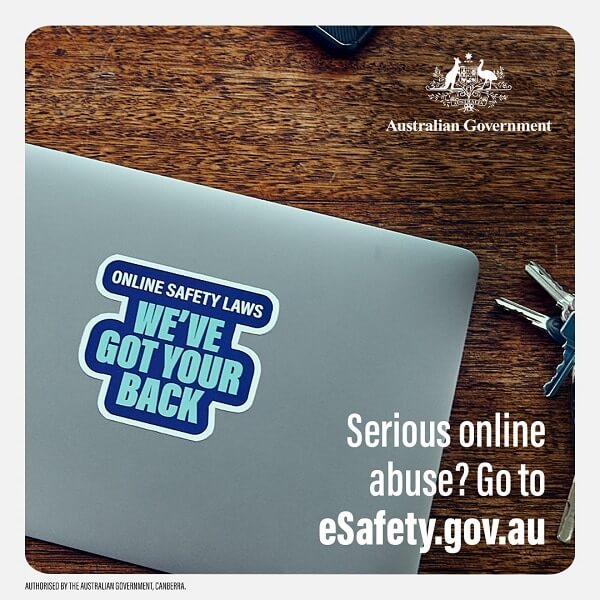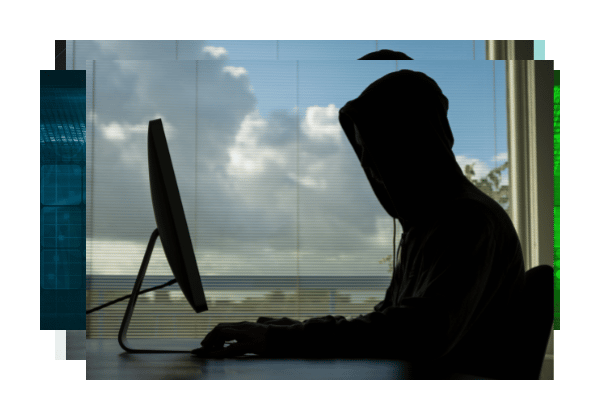Being online provides incredible opportunities for connection. To meet new people, to stay in touch with family and friends, to uncover new art, music and culture.
But what happens when that goes wrong? What happens when we’re exposed to harmful torment – even serious abuse?
It may seem overstated – but the risks of being online are far greater than most people realise. Risks need to be managed – or else there may be serious consequences.
New online safety laws, in place since January 2022, mean there are more avenues for people to protect themselves from serious online abuse than ever before. They mean the eSafety Commissioner can hold abusers to account, and that it has more power to have harmful and serious online abusive content removed. But what does that mean for multicultural communities?
To find out, I sat down with a handful of respected figures from across multicultural Australia to discuss why multicultural communities are more at risk of serious online abuse or harassment, and how we can support one another to seek help.
The culture of silence in many multicultural communities was a prevalent theme. Across cultures, there is often fear of speaking out, fear of becoming ostracised, of being a victim – even of placing blame on someone else in your community.
18% of ‘culturally and linguistically’ diverse people in Australia say they’ve experienced online hate speech – higher than the national average at 14%. Given the fear of speaking out is so common across communities – I’d hazard a guess the real difference is even greater.
This is of course without even mentioning the lack of understanding about what constitutes serious online abuse, or where to report it.
In our group discussion, one member shared her experience as a victim. The story was harrowing – and painted a picture of torment that spread through her life like wildfire. Friends withdrew for fear of becoming her abuser’s next target, and she felt helpless at every turn.
Hearing her story makes you think to yourself: would I know what to do if that was happening to me? If someone was harassing me online, where would I go? Who could help?

For multicultural communities, these questions carry even greater weight and urgency. Not only are we overrepresented amongst victims, the statistics show that when taken together, ethnicity, race and nationality is the number one reason people cite for being targeted by online hate speech.
As for those new to the country, and not as familiar with the laws and processes in place – it’s a frightening combination: people who are more likely to be targeted, and less likely to know what to do about it.
It is essential everyone in our community understands the laws, and what to do when they are victimised and broken. Looking at the way people act online, it’s easy to see how things can spiral out of control. I’d presume that many perpetrators don’t fully understand that what they’re doing is illegal. And if they don’t know what they’re doing is breaking the law, will their victims? Will they realise there is something they can do about it?
An analogy I like to use is this. If you go to a park, and everyone is keeping it very clean and treating each other with respect, you are likely to do the same. But if there’s litter everywhere, and people are doing whatever they want – perhaps we come to accept it.
It’s the same when you’re online. We need to somehow break the culture, and encourage people to speak up and speak out when things go wrong – and give them the tools to do so.
Now is the time to have this conversation, loudly. With our friends, our families and our communities – ensuring everyone knows where to get help when they need it.
New powers held by the eSafety Commissioner are there to help us hold abusers to account and put protections in place. By starting these conversations and supporting those in our community who might need a bit more help, we can build an online culture where people feel safe in the knowledge that there are laws there to protect them.
Many migrants come to Australia seeking safety. Now, as the virtual world becomes more and more part of our lives and routine, we must ensure that safety extends beyond the physical world and into online. We have a right to safety – both on and offline. The tools and laws are in place – we just need to make sure people know they’re available.
Start the conversation, and help ensure people are protected in all parts of their lives.
For more information about the new online safety laws and how to report it in up to 12 languages, visit www.esafety.gov.au/online-safety
READ ALSO: SBS series shows how unsafe we can be online




